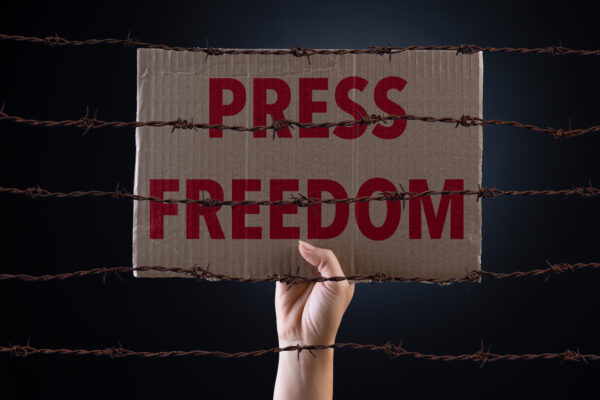Does freedom of the press matter anymore? Indeed, does the press even matter anymore? Judging by their reading and viewing habits, many Americans’ answers to those questions seem to be “no.” Readership of newspapers has been declining for many years, and fewer than half of adults watch television news.
Some say don’t worry: Cable news is available 24 hours a day, and many people get their news from social media. But those are not the press, and they are not adequate substitutes for the press. The press doesn’t just repeat news from other sources, and it doesn’t just opine. It gathers news, an enterprise that requires sustained effort, resources and expertise. Cable news and social media don’t provide the informed, reliable, daily coverage of city halls, legislatures, elections and other activities that make self-government possible.
That is done primarily by the press, and contrary to popular belief, newsgathering does not get much protection from the First Amendment. Press access to public meetings and records is protected only by state and federal statutes that can be amended or repealed like any other law. Press credentials, press rooms, news conferences and public information officers are not mandated by the Constitution. Nor are public officials required by the Constitution to explain their actions or answer questions.
These exist at the sufferance of public officials who can eliminate them to punish news outlets for coverage they dislike. All that protects newsgathering is faith in the mission of the press on the part of the public and its representatives.
The constitutional doctrines that protect the press may be better protected from anti-press sentiments, but they are not immutable. The most important are limitations on libel law emanating from the Supreme Court’s 1964 decision in New York Times v. Sullivan. Before that, public officials could often secure crippling libel judgments for errors in reporting criticizing them. But as Sullivan recognized, “erroneous statement is inevitable in free debate.”
The court’s solution was a constitutional rule that prohibits a public official from recovering damages for a defamatory falsehood relating to his official conduct unless he proves that the statement was made with “actual malice” — that is with knowledge that it was false or with reckless disregard of whether it was false or not. After hundreds of decisions struggling to define the term, “actual malice” seems to mean something tantamount to lying. An analogy may be found in current attempts to distinguish “misinformation” from “disinformation”; we may find it difficult to draw the line, but we recognize that it exists.
Supreme Court Justice Clarence Thomas has long argued for reconsideration of Sullivan, and Judge Lawrence Silberman of the U.S. Court of Appeals for the District of Columbia Circuit earlier this year endorsed the idea. Thomas and Silberman got little traction, perhaps because their views seemed to stem from the belief that the press is biased against conservatives.
But the reconsideration movement recently gained momentum from a dissenting opinion by Supreme Court Justice Neil Gorsuch that was less polemical and more precisely aimed at the extensions of Sullivan that are most questionable. Without endorsing specific changes, Gorsuch said “given the momentous changes in the Nation’s media landscape since 1964, I cannot help but think the Court would profit from returning its attention” to the matter.
Trimming back some of Sullivan’s excesses, such as its extension to people who are merely famous or successful, and rules that make it almost impossible to prove actual malice, would not do serious harm to freedom of the press. Overzealous revision of Sullivan would, however, and so would withdrawal of the nonconstitutional perquisites that enable the press to gather news.
As Supreme Court Justice Potter Stewart famously said many years ago, “Newspapers, television networks, and magazines have sometimes been outrageously abusive, untruthful, arrogant, and hypocritical. But it hardly follows that elimination of a strong and independent press is the way (to go).”
David Anderson is the Fred & Emily Marshall Wulff Centennial Chair Emeritus in Law and an expert in libel and privacy law at The University of Texas at Austin.
A version of this op-ed appeared in The Hill.




